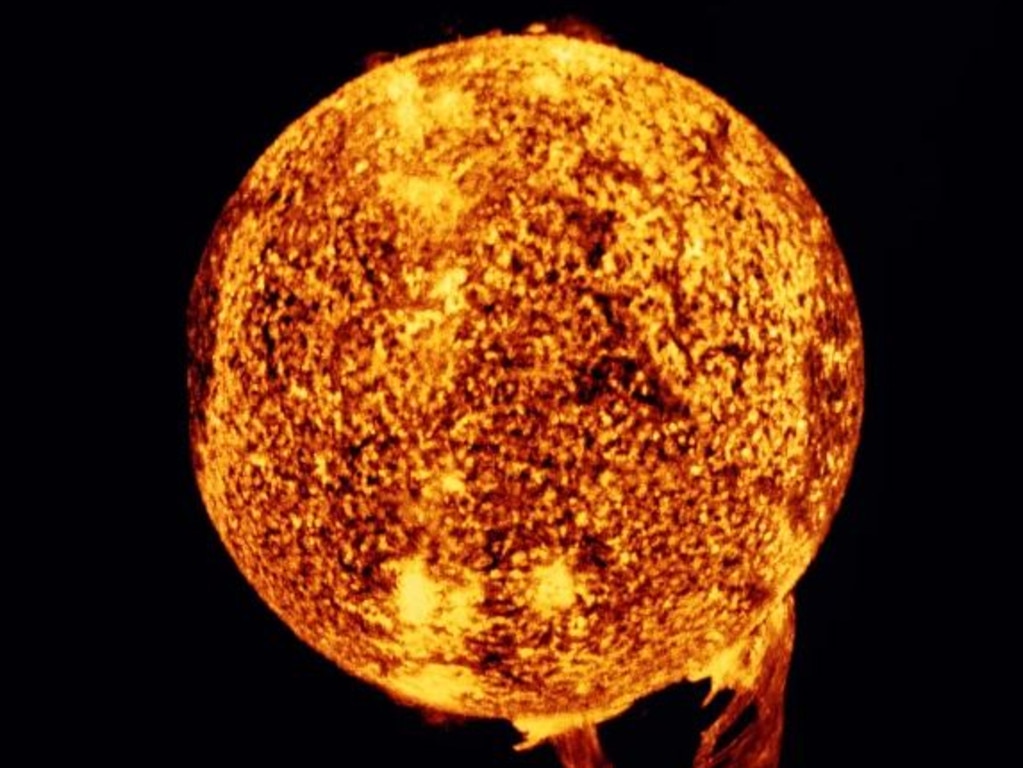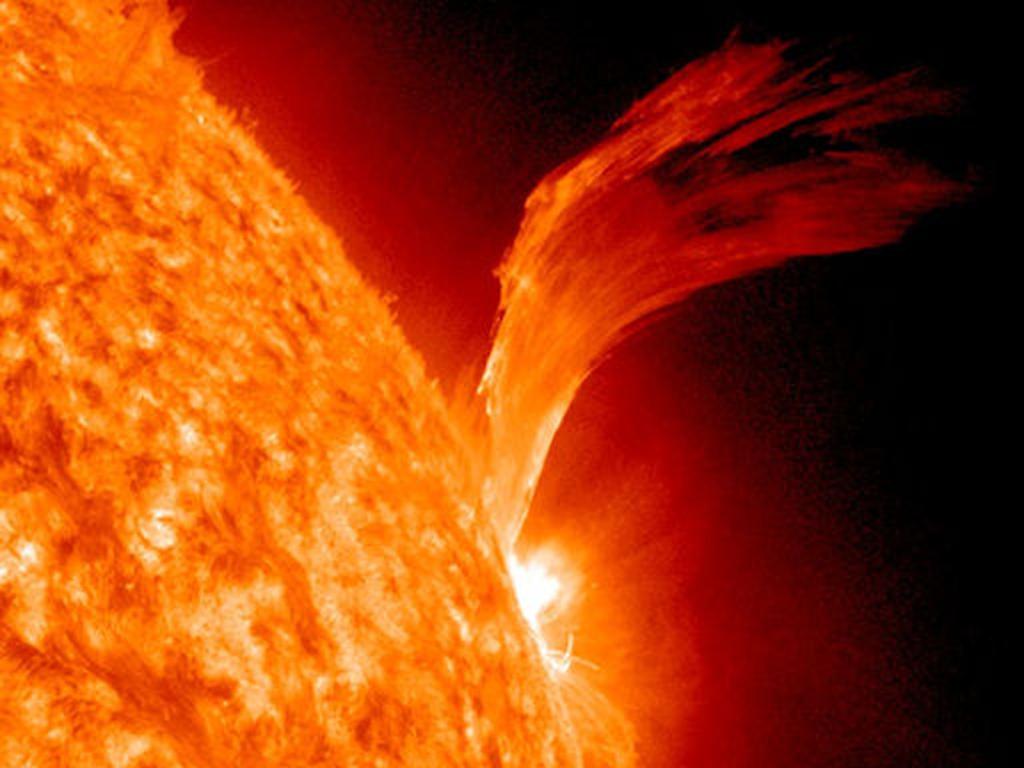Solar flare expected to deliver ‘glancing blow’ to Earth
Experts predict a solar flare could hit earth, sparking a terrifying geomagnetic storm that could affect power grids and satellite communications.
Space experts think a solar flare could hit Earth on May 28.
The predicted “glancing blow” would produce “G1-class geomagnetic storms”.
Experts from SpaceWeather.com said “a magnetic filament snaking through the corpse of decayed sunspot AR3016 erupted on May 25th (1824 UT), producing a M1-class solar flare.”
“Coronagraph images from the Solar and Heliospheric Observatory (SOHO) confirm that the explosion hurled a CME into space,” they said.
Stream more science news live & on demand with Flash. 25+ news channels in 1 place. New to Flash? Try 1 month free. Offer ends 31 October, 2022 >

“The bulk of the CME will miss Earth, passing just ahead and south of our planet. However, a fraction of the cloud will hit.”
“NOAA analysts expect a glancing blow to Earth’s magnetosphere on May 28th with a chance of minor G1-class geomagnetic storms.”
Each solar flare that shoots through space and hits Earth can spark a geomagnetic storm.
The one that could happen on Saturday has been labelled as a G1-class so wouldn’t have a strong impact if it does happen.
G1-class means the solar storm could cause weak power grid fluctuations and have a small impact on satellite communications.
A G1 storm can also confuse migrating animals that rely on the Earth’s magnetic field for a sense of direction.

One good thing about solar storms is that they can produce very pretty natural light displays like the Northern Lights.
Those natural light displays are called auroras and are examples of the Earth’s magnetosphere getting bombarded by solar wind, which creates pretty green and blue displays.
The Earth’s magnetic field helps to protect us from the more extreme consequences of solar flares.
We mostly notice their impact when they affect our tech on Earth.
In 1989, a strong solar eruption shot so many electrically charged particles at Earth that the Canadian Province of Quebec lost power for nine hours.
This article originally appeared on The Sun and is republished here with permission.





